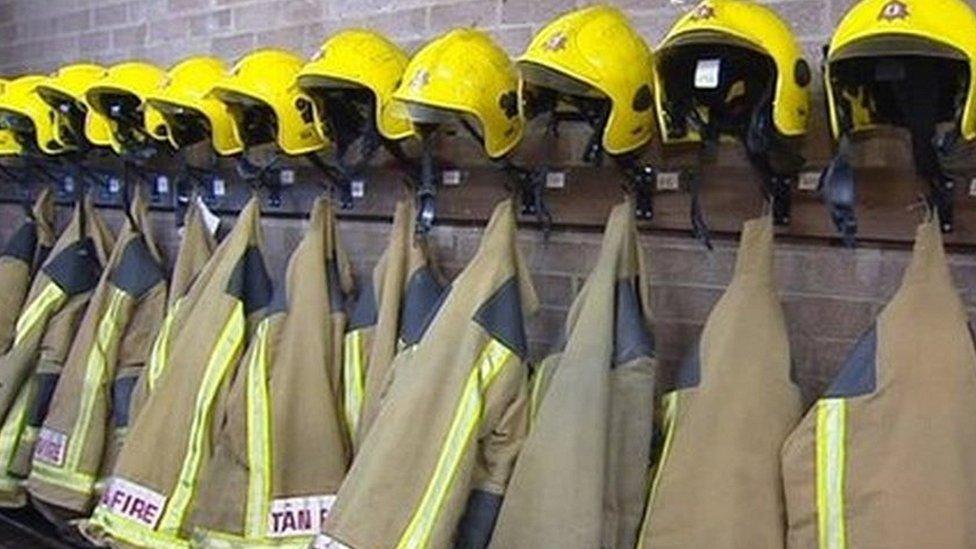Combustible cladding ban in Wales 'early in new year'
- Published
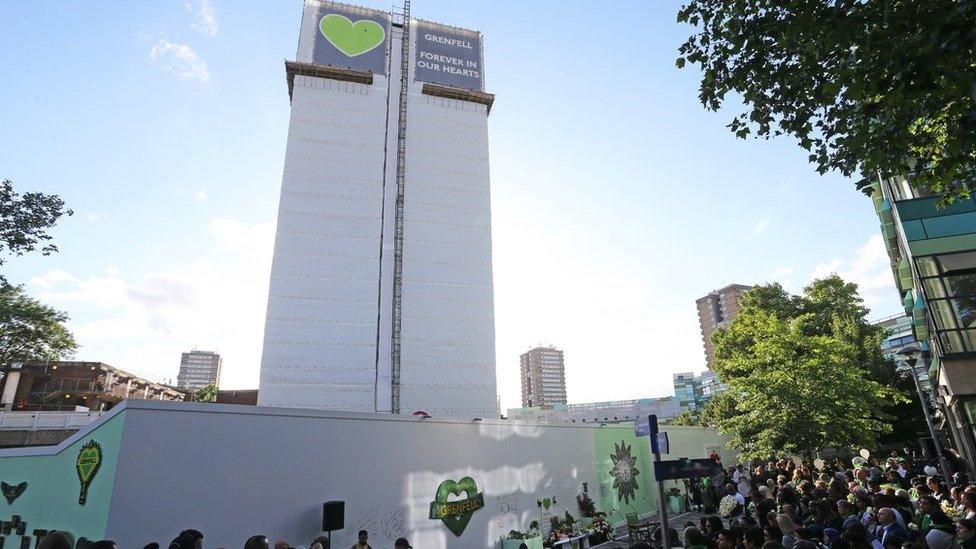
The fire at Grenfell Tower killed 72 people
A ban on using combustible cladding materials on buildings in Wales is expected to come into force early in the new year, a minister has said.
An inquiry into the Grenfell Tower fire, in west London, heard evidence that such material was the main reason the blaze spread so rapidly.
The fire killed 72 people in June 2017.
Housing Minister Julie James said she hoped to publish proposed building regulation amendments before Christmas for the Welsh Assembly to consider.
She was being questioned by the assembly's local government and communities committee on Thursday.
In a paper for the committee Ms James said: "I will be making amendments to the current building regulations in order to ban the use of combustible cladding materials, making it clear what cladding is acceptable on high-rise residential buildings."
Francois Samuel, a civil servant in charge of building regulations for the Welsh Government, told AMs it had taken "a number of months" to hire the experts it needed to make the legal changes.
Mr Samuel said there had also been a three-month "standstill period" to comply with EU rules intended to stop member nations changing standards to reduce competition for their own firms.
In her paper, Ms James said ministers would be consulting "shortly" on making it a legal requirement to consult the fire and rescue service during the planning stages for all new high-rise buildings.
She has also asked officials to explore whether a "low cost loan" could be made available to encourage sprinkler systems to be installed in existing buildings, "focusing particularly on high-rise residential buildings".
Sprinklers have been compulsory in all new homes in Wales since 2013.
- Published29 October 2019
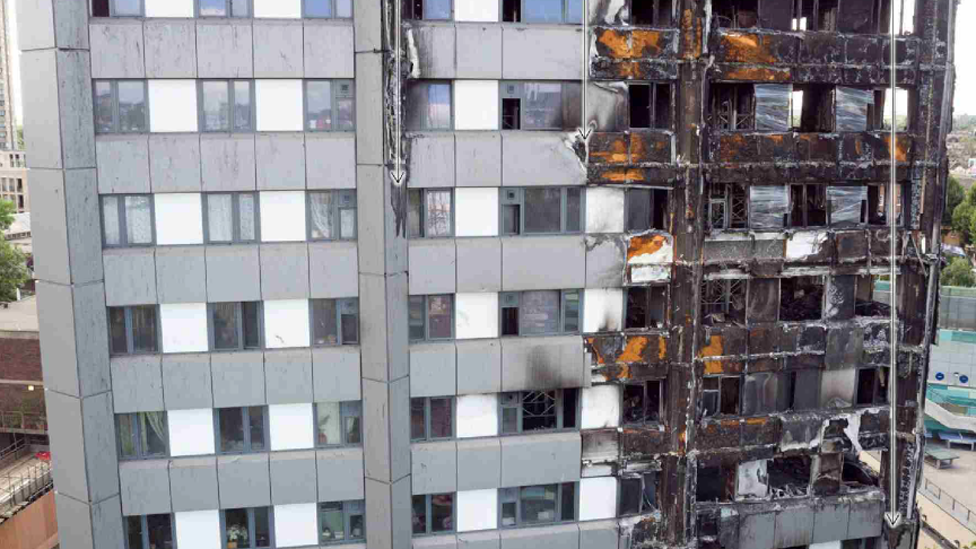
- Published23 October 2019
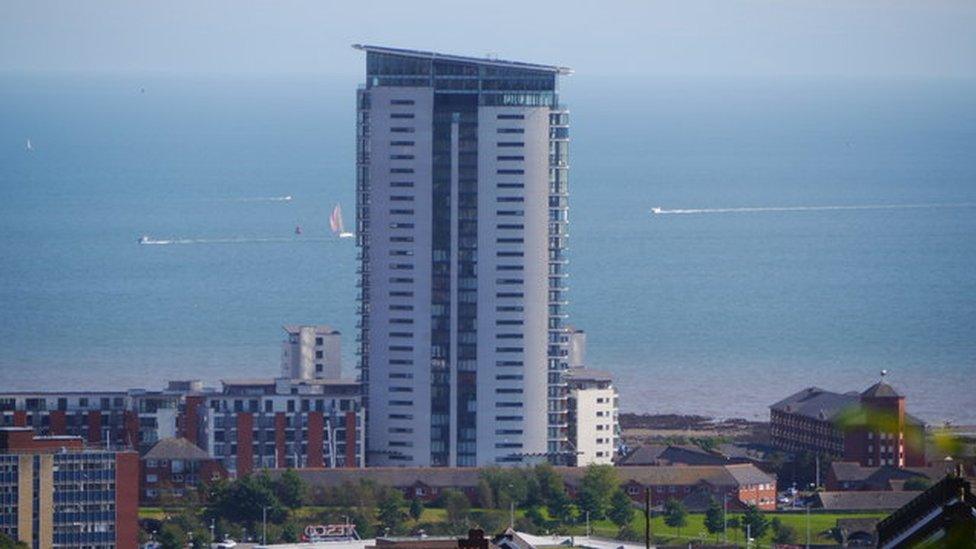
- Published16 October 2019
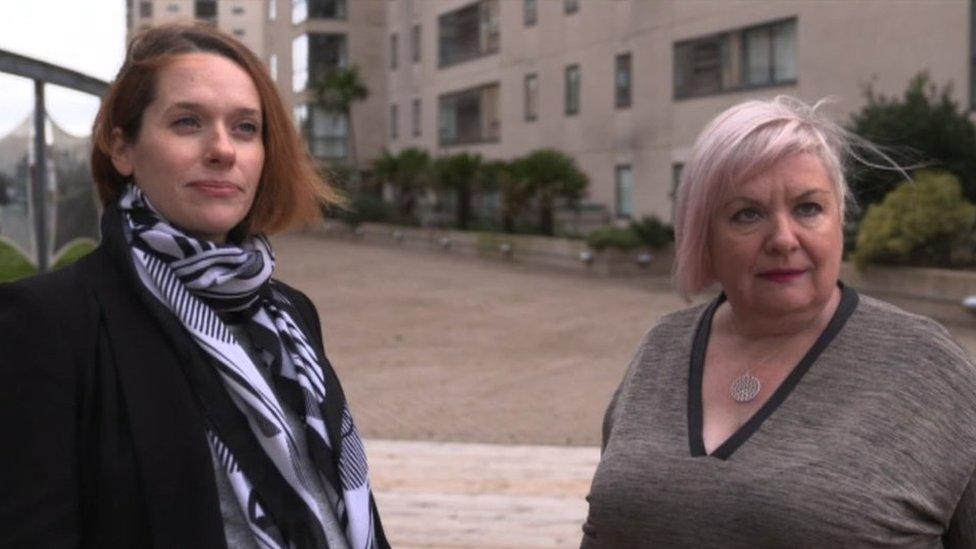
- Published16 November 2018
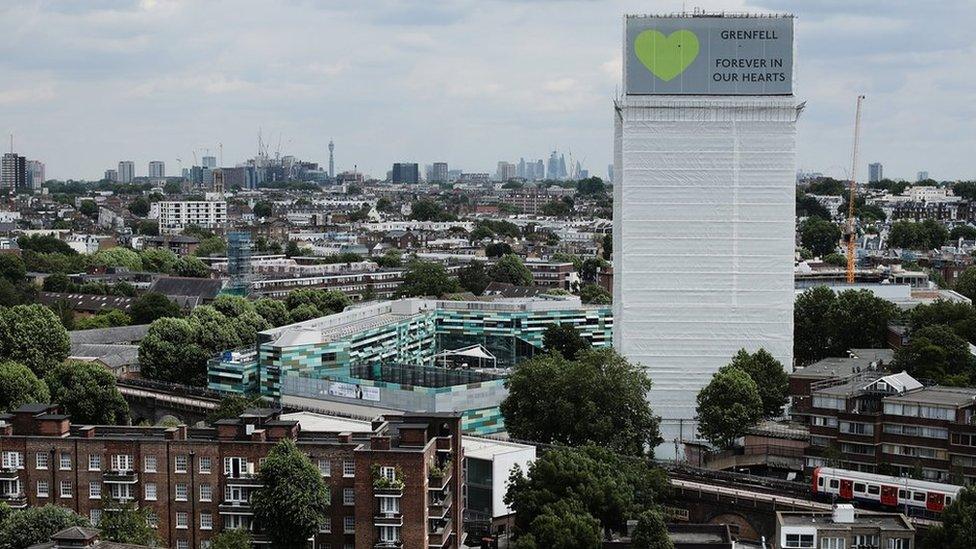
- Published22 May 2018
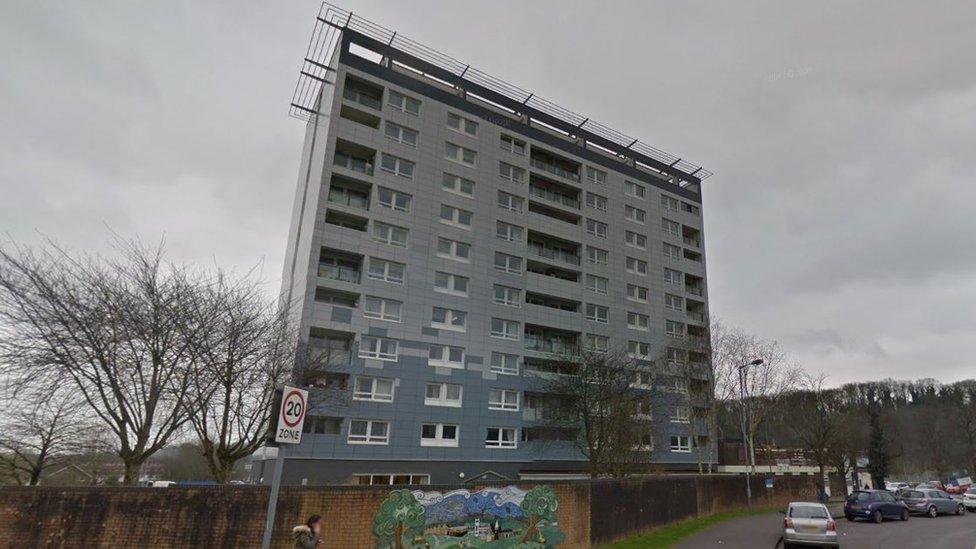
- Published16 February 2018
